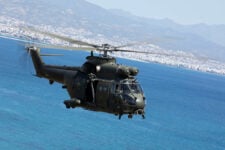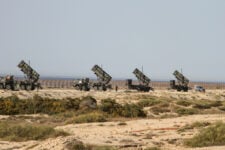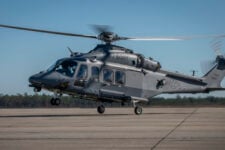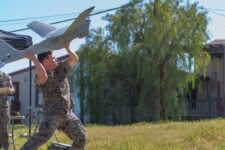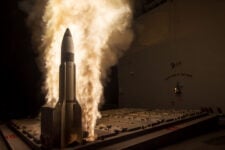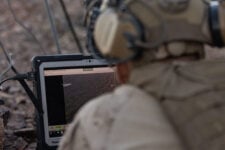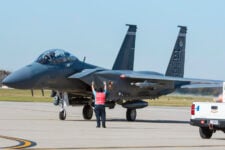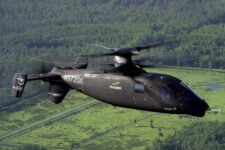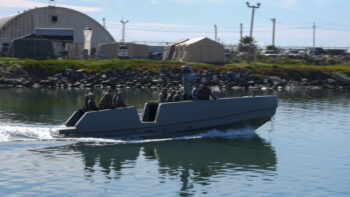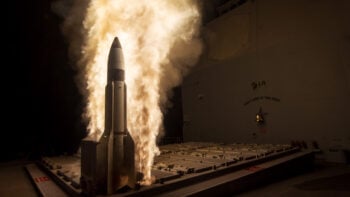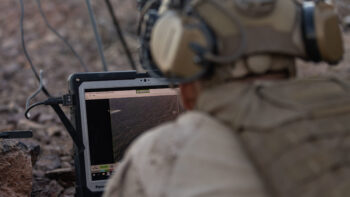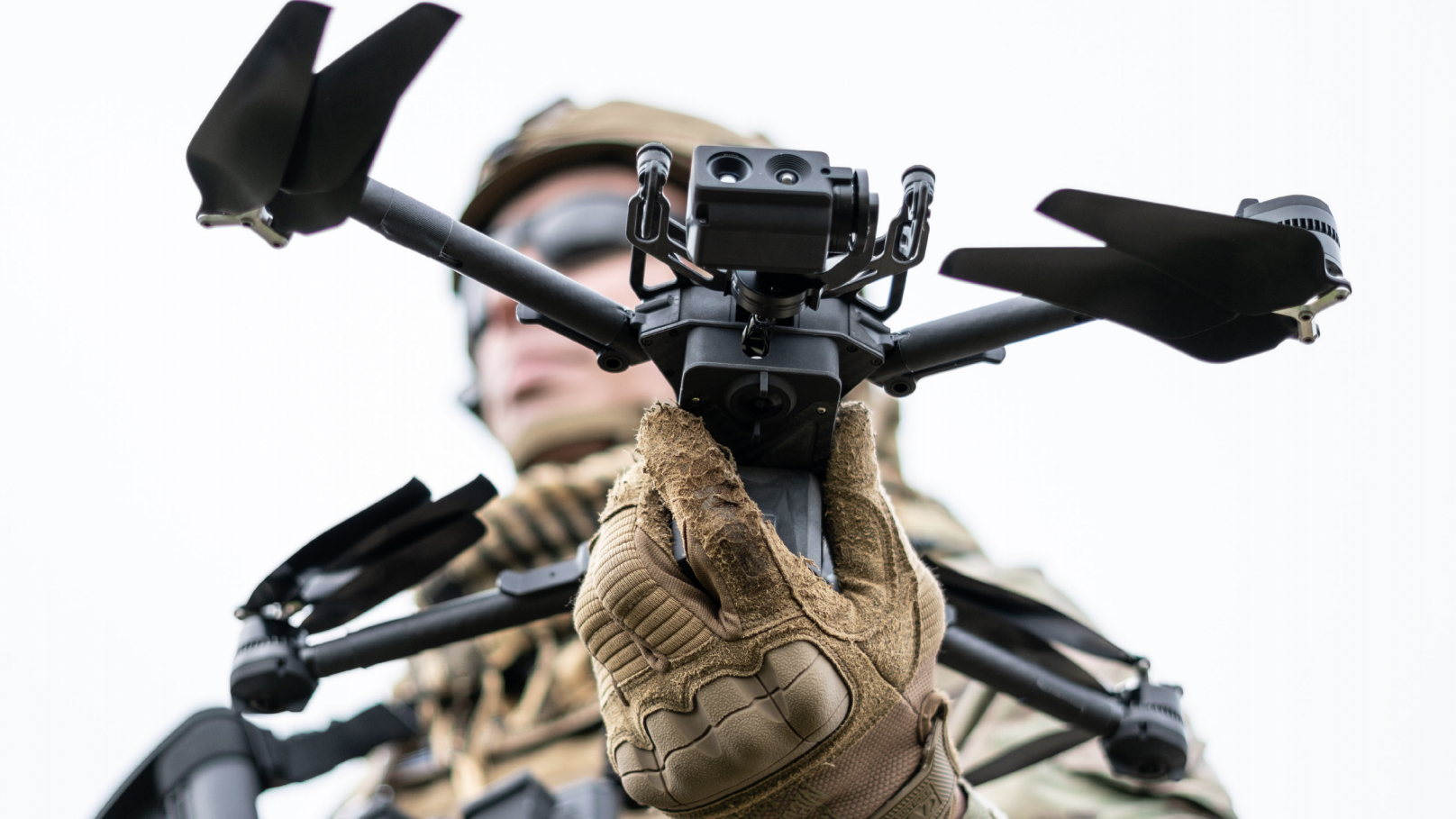
A soldier handles a commercially-developed drone acquired via the Defense Innovation Unit (DIU).
WASHINGTON — The Defense Innovation Unit (DIU) is asking industry to submit proposals for affordable, mass-produced open architecture, medium-range “unmanned aerial delivery vehicles,” weeks after the Pentagon announced a new effort to counter China with thousands of autonomous systems.
“The Department of Defense replenishment rates for unmanned aerial delivery vehicles are neither capable of meeting surge demand nor achieving affordable mass,” according to a DIU “solution brief.” “The current design and manufacture of airborne medium range precision delivery vehicles is complex, costly, and limited by historically slower production rates due to exquisite components and labor-intensive manufacturing processes.”
According to the announcement, DIU is looking for systems “that will accelerate capability development and fielding across all weapons programs by enabling the integration, testing, and qualification of different subsystems, capabilities, and materials.”
DIU lists specific capabilities it’s seeking with the systems, including the ability to fly at least 500 nautical miles, to integrate sensors and modular payloads, to deliver a kinetic payload and to demonstrate an initial flight test no later than seven months after an award.
And though the solicitation makes no mention of it by name, the request comes after Secretary of Defense Kathleen Hicks announced the Replicator initiative to counter China’s military mass that aims to crank out “multiple thousands” of “attritable autonomous systems” across “multiple domains” within two years. Scaling will be the problem Replicator will most directly address, she said at a conference on Aug. 28.
“We’ve looked at that innovation ecosystem [and] we think we’ve got some solutions in place… across many of those pain points, but the scaling piece is the one that still feels quite elusive — scaling for emerging technology,” Hicks said. “And that’s where we’re really going to go after with Replicator: How do we get those multiple thousands produced in the hands of warfighters in 18 to 24 months?”
Hicks, along with the vice chairman of the Joint Chiefs of Staff, will oversee the effort and lead the Deputy’s Innovation Steering Group with support from DIU. Doug Beck, director of DIU, told Breaking Defense in a Sept. 13 interview that the organization will help “set the agenda” for the initiative, and Replicator would be the first “big bang” the steering group would focus on.
According to today’s announcement, “multiple vehicle types may be selected for prototyping and multiple variants may be developed following a successful initial flight test.” Responses are due by Oct. 10.
Air Force stands up two new EW squadrons, but still short on personnel
“We have recognized in our threat analysis that we need these capabilities in our wing in order to make our three wing missions executable,” Col. Joshua Koslov said of activating two EW squadrons. “And so that’s exactly what’s driving it.”

